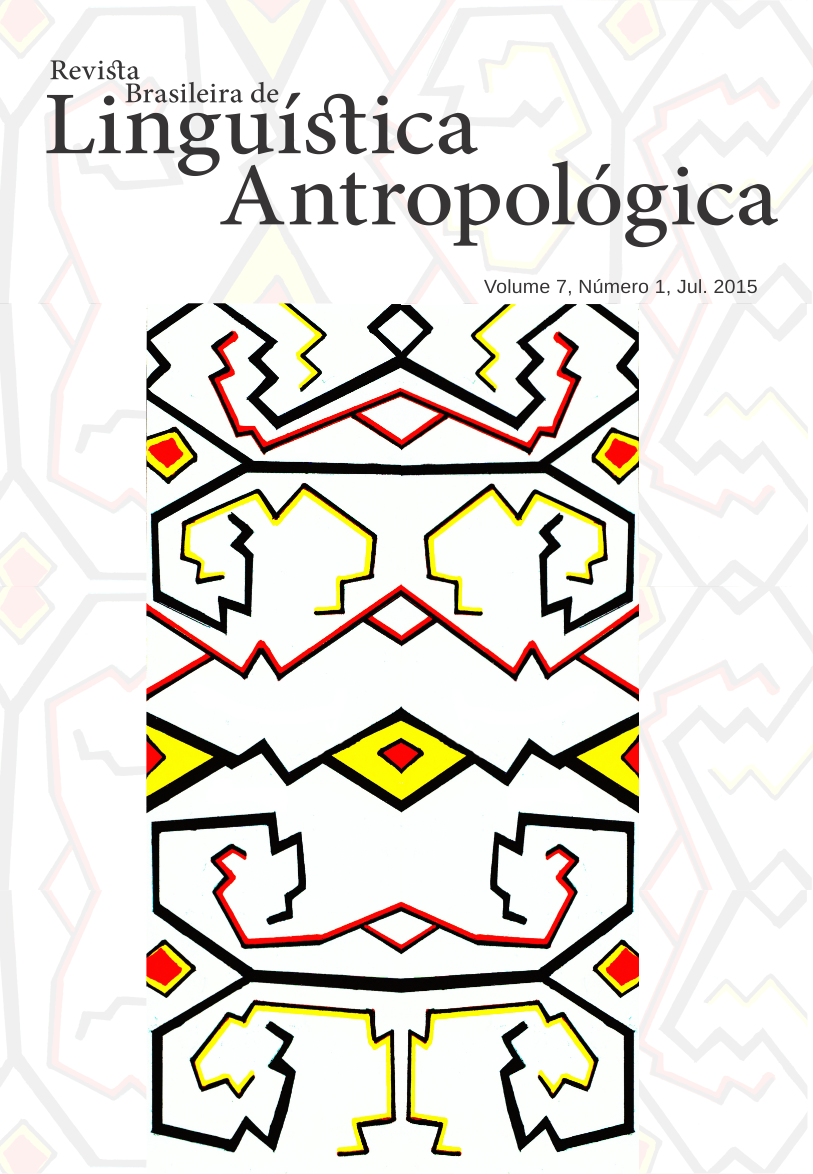Metáfora ontológica: a personificação na narrativa mítica e nos processos de formação de palavras Tupí
DOI:
https://doi.org/10.26512/rbla.v7i1.16292Keywords:
LinguísticaAbstract
Este trabalho tem por objetivo a análise de construções metafóricas ontológicas em línguas Tupí, tomando-se por base a teoria cognitiva da metáfora (Lakoff; Johnson 2002). Parte da pesquisa foi realizada no período de 2005 a 2007, com o auxílio do PIBIC/UNIR/CNPq e da Universidade de Porthsmouth (Inglaterra). A abordagem cognitiva de análise linguística se pauta na busca de relações entre a experiência do domínio físico, a natureza conceptual do pensamento e a arquitetura da linguagem; um olhar atento para a linguagem do cotidiano é o bastante para que se perceba o valor e a frequência de expressões metafóricas; além disso, as metáforas estão profundamente relacionadas com os conceitos culturais dos povos, envolvendo fatores culturais, linguísticos, contextuais e cognitivos. No presente estudo, enfoca-se a metáfora ontológica da personificação. São analisadas: (i) duas versões de uma mesma narrativa oral, (ii) sentenças complexas produzidas oralmente; (iii) algumas palavras compostas da língua em foco, demonstrando, no processo de formação dessas palavras, a ocorrência de processos metafóricos, envolvendo a personificação.References
Basílio, Margarida. 2007. Teoria Lexical. São Paulo: Ática.
Benjamin, W. 1985. O narrador: considerações sobre a obra de Nikolai Leskov. In Magia Técnica, Arte e Política. São Paulo: Brasiliense.
Croft, W.; D. A. Cruse. 2004. Cognitive linguistics. Cambridge: Cambridge University Press.
Dubois, J. et al. Dicionário de Linguística. São Paulo: Cultrix, 1993.
Lakoff, G.; M. Johnson. 2002. Metáforas da vida cotidiana. Campinas, SP: Mercado de Letras; Educ. (Coleção As Faces da Linguística Aplicada)
Lakoff, G. 1987. Women, fire and dangerous things: what categories reveal about the mind. Chicago: University of Chicago Press.
Kövecses, Z. 2005. Metaphor in culture: universality and variation. Cambridge: Cambridge University Press.
______. 2006. Language, culture and mind: a pratical introduction. Oxford: Oxford University Press.
______. 2009. Metaphor, culture and discourse: the pressure of coherence. In: A. Mulsolff & J. Zinken (Eds.). Metaphor and discourse. London: Palgrave Macmillan, pp. 11-240.
Downloads
Published
Issue
Section
License
Copyright (c) 2015 Revista Brasileira de Linguística Antropológica

This work is licensed under a Creative Commons Attribution 4.0 International License.
Authors who publish in RBLA agree to the following terms:
a) Authors maintain the copyright and grant the journal the right of first publication, and the work is simultaneously licensed under the Creative Commons Attribution License, which allows the sharing of the work with recognition of the authorship of the work and initial publication in this journal.
b) Authors are authorized to assume additional contracts separately, for non-exclusive distribution of the version of the work published in this journal (eg, publish in an institutional repository or as a book chapter), with recognition of authorship and initial publication in this journal.
c) Authors are allowed and encouraged to publish their work online (eg, in institutional repositories or on their personal page) at any point before or during the editorial process, as this can generate productive changes, as well as increase impact and citation of the published work.







